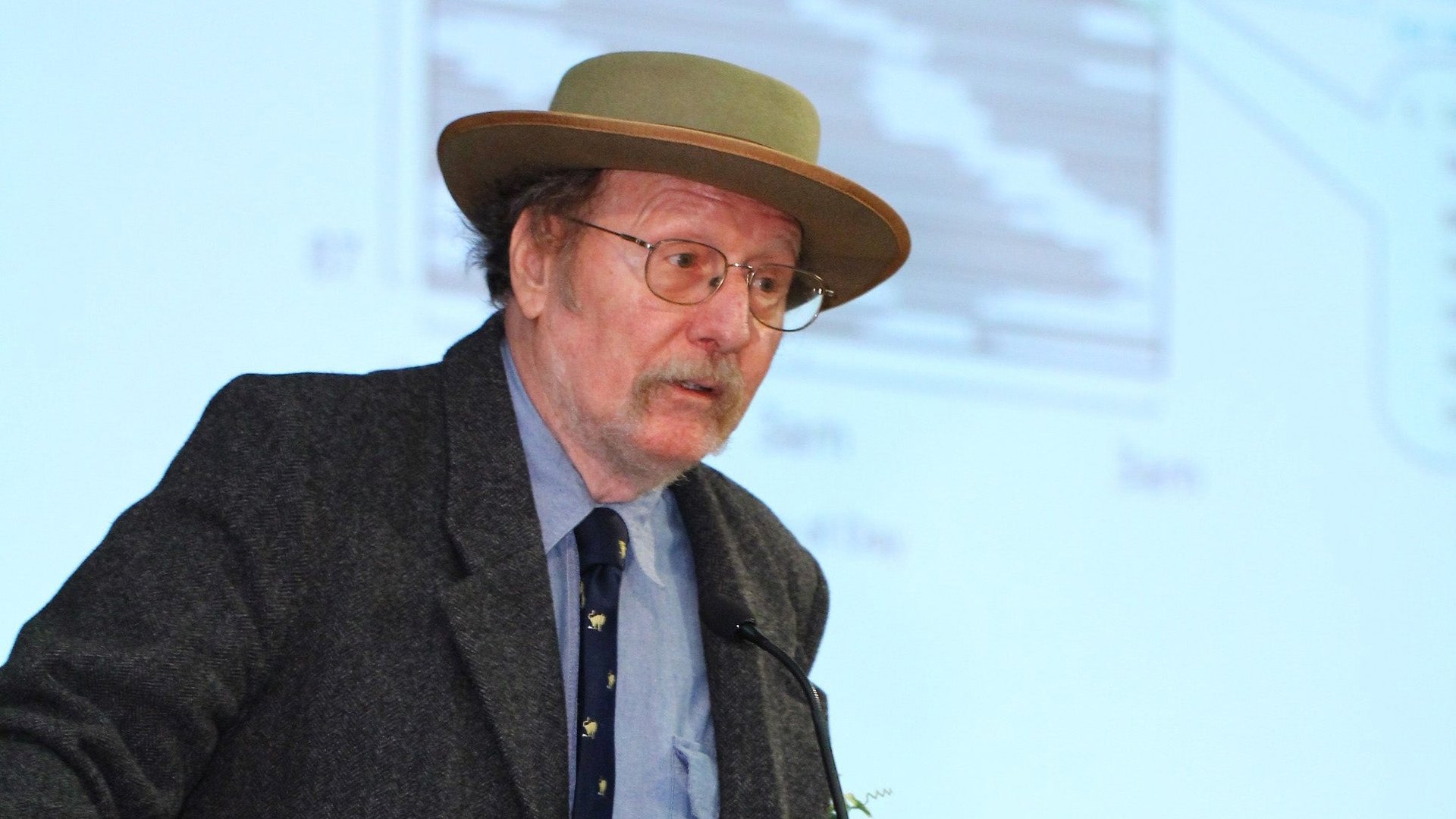A 2017 Nobel laureate says he left science because he ran out of money and was fed up with academia
Jeffrey Hall, a retired professor at Brandeis University, shared the 2017 Nobel Prize in medicine for discoveries elucidating how our internal body clock works. He was honored along with Michael Young and his close collaborator Michael Roshbash. Hall said in an interview from his home in rural Maine that he collaborated with Roshbash because they shared common interests in “sports, rock and roll, beautiful substances and stuff.”


Jeffrey Hall, a retired professor at Brandeis University, shared the 2017 Nobel Prize in medicine for discoveries elucidating how our internal body clock works. He was honored along with Michael Young and his close collaborator Michael Roshbash. Hall said in an interview from his home in rural Maine that he collaborated with Roshbash because they shared common interests in “sports, rock and roll, beautiful substances and stuff.”
About half of Hall’s professional career, starting in the 1980s, was spent trying to unravel the mysteries of the biological clock. When he left science some 10 years ago, he was not in such a jolly mood. In a lengthy 2008 interview with the journal Current Biology, he brought up some serious issues with how research funding is allocated and how biases creep into scientific publications.
He complained that some of the “stars” in science “have not really earned their status” yet they continued to receive massive amounts of funding. He also said that these stars have boasted to him that they almost never send their articles to “anywhere but Nature, Cell, or Science“—among the three most prestigious science journals. “And they are nearly always published in one of those magazines—where, when you see something you know about, you realize that it’s not always so great,” he continued.
Hall saved his most bitter remarks for when he was asked, “The implication is that you are not graced with the ability to function in this manner? Is this true, and is it why you are about to leave science early?”
His answer:
Yes and yes. I admit that I resent running out of research money…recent applications from our lab have had their lungs ripped out, often accompanied by sneering, personal denunciations—perhaps reflecting the fact that this old-timer has lost his touch. But I still love the little flies and claim that my colleagues and I could continue to interact with them productively.
The little flies Hall referred to are fruit flies, the creatures Hall and his colleagues used to make the discoveries that led to the Nobel Prize. But he had more to say:
Whether or not a researcher of a certain notoriety deserves that the ‘support system’ [to] keep him going, there is a far more general problem: What props up biological research, at least in the vaunted US of A, involves a situation so deeply imbued with entitlement mentality that it has sunk into institutional corruption. A principal symptom of this state of affairs involves the following: People are hired after they have undergone long stints of training; and a potential hiree must present a large body of documented accomplishments. In my day you could get a faculty job with zero post-doc papers, as in the case of yours truly; but now the CV of a successful applicant looks like that of a newly minted full Professor from olden times. Notwithstanding these demands, and the associated high quality of a fledgling faculty-level type, the job starts with some “set-up” money for equipping the lab; but next to no means are provided to initiate that ‘research program’ and to sustain it during the years to come.
US institutions (possibly also those in other countries) behave as though they… are entitled to research funding, which will magically materialize from elsewhere: “Get a grant, serf! If you can’t do it quickly, or have trouble for some years — or if your funding doesn’t get renewed, despite continuing productivity — forget it!” But what if there are so many applicants (as there are nowadays) that even a meritorious proposal gets the supplicant nowhere or causes a research group to grind prematurely to a halt? What if the situation is worsened when the government at hand is anti-science and otherwise squanders its resources on international adventurism?
Having left science, Hall’s real worry was not for himself but the next generation of scientists:
Having said all this, I acknowledge that “I got mine” from the government over the course of many years. Thus, as I say so long,” one component of my last-gasp disquiet stems from pompously worrying about biologists who are starting out or are in mid-career.